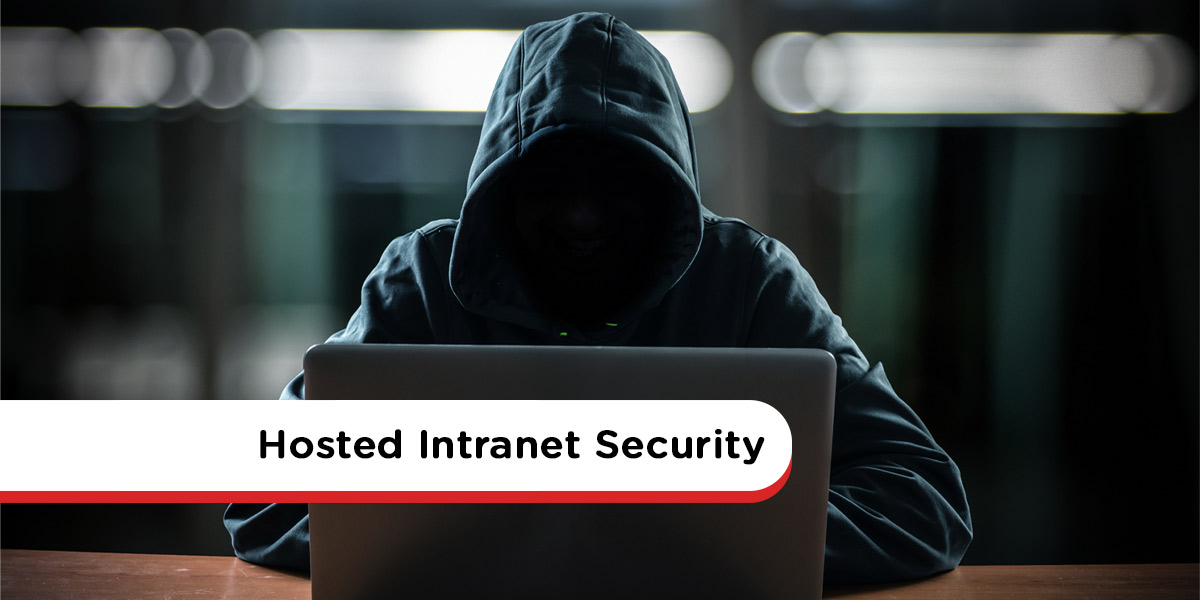Understanding Hosted Intranet Security: Risks and Best Practices
In today’s digital landscape, security is a top priority for businesses of all sizes. Whether you’re considering a hosted intranet solution or already using one, it’s essential to understand the security risks involved. Data breaches have become increasingly common, and no industry is immune to cyber-attacks. In fact, research indicates that cybersecurity incidents in the U.S. have surged by 38% since 2014, costing American businesses between $300 billion and $1 trillion each year. These attacks aren’t exclusive to large corporations—small and mid-sized businesses are also frequent targets. According to CIO, 36% of all cyber-attacks are aimed at these smaller organizations, and alarmingly, 60% of them go out of business within six months. The financial fallout can be severe, with costs starting at $9,000, not to mention long-term damage to reputation and trust.
Is the Cloud Really Safe?
With the growing reliance on cloud-based solutions, including hosted intranets, questions about cloud security have naturally emerged. However, experts argue that many of these concerns are based on misconceptions. As noted by Information Age, the myth that cloud services are less secure than on-premise systems is largely unfounded. In reality, the most significant risks often stem from human error—whether accidental or malicious. While breaches are a genuine concern, cloud service providers typically offer more robust security controls than internal IT teams can deliver.
The key benefit of a hosted intranet is that it shifts much of the security responsibility to a specialized third-party vendor. These vendors are experts in IT security, with the infrastructure, tools, and resources needed to protect your data. It’s like hiring a professional security company to protect your home instead of just locking your windows. While small business owners may become distracted with operations, cloud providers are constantly upgrading systems and staying ahead of new threats. For businesses without a dedicated IT staff, a cloud-hosted intranet is often the more secure and scalable option.
That said, security isn’t just about technology—risk management plays a critical role. Even the most secure network can be breached if access controls, password policies, and user awareness aren’t enforced. Intranets often store sensitive internal data, making them potential gateways for broader network attacks. To fully protect your intranet, you’ll need both a secure cloud solution and a set of best-practice policies that every employee follows. Below, we explore the top five intranet security risks every business should watch for.
Five Intranet Security Risks to Watch
Even the most advanced intranet can be compromised if the human factor and security protocols are neglected. Here are five common vulnerabilities businesses should proactively address:
1. Complacent Attitudes Among Employees
Because the intranet feels like a private, safe space, employees often let their guard down. They use it to connect socially, access documents, watch training videos, or post personal profiles—all in an environment that feels closed off from external threats. This false sense of security can lead to risky behaviors like using weak passwords, clicking suspicious links, or sharing unencrypted files.
✅ Solution: Raise awareness about cybersecurity best practices. Implement policies requiring strong, regularly updated passwords with a mix of characters, and offer ongoing employee security training.
2. Rogue Employees
Even in a trusted team, there’s always a potential risk of a disgruntled employee causing harm. While you can’t always predict behavior, you can limit exposure. Platforms like MyHub offer tiered access permissions, allowing control over who can view or edit specific content, modules, or pages.
✅ Solution: Use granular permission settings and ensure access can be revoked instantly when an employee leaves or changes roles.
3. Outdated Permissions
It’s easy to give access—but not so easy to remember to take it away. Over time, employees change roles, take on new responsibilities, or move to different teams, and their access rights often go unchecked.
✅ Solution: Establish a regular review process for user permissions. Update access based on current roles and responsibilities to avoid over-permissioning.
4. Remote Access & BYOD (Bring Your Own Device)
One of the best features of a cloud-based intranet is the ability to log in from anywhere. But when staff use personal devices to access the network, security risks increase.
✅ Solution: Choose an intranet vendor that enforces SSL encryption (Secure Socket Layer), which ensures that all communication between user devices and your intranet is secure and private—the same level of protection used by banks and online retailers. Platforms like MyHub already implement SSL site-wide.
5. System Reliability & Availability
Security also means your data must be always available and protected from threats beyond cyber-attacks, like natural disasters or outages. Not all vendors offer the same level of resilience.
✅ Solution: Ask your provider about their backup systems, disaster recovery plans, and uptime track record. Can they scale with you? What happens when you reach your data limits? Reliable vendors ensure minimal downtime, scalable storage, and quick support when needed.
A Trusting Relationship with Your Intranet Vendor
Opting for a hosted intranet may mean giving up some control, but the benefits far outweigh the risks—especially for small to mid-sized businesses without dedicated IT teams. Here are three compelling reasons companies choose a cloud-based solution:
- Superior IT Support
- Gain access to experienced professionals who specialize in intranet platforms.
- Get fast, reliable help during technical issues or project roadblocks.
- Benefit from expert-level guidance without hiring a full IT team.
- Always Up-to-Date and Secure
- Stay protected with automatic software and security updates.
- Avoid vulnerabilities caused by outdated systems.
- Trust that your provider prioritizes the latest features and security protocols.
- Cost Efficiency
- Eliminate the need for expensive servers and IT infrastructure.
- Save on implementation and ongoing maintenance costs.
- Enjoy built-in security without additional expenses.
MyHub Intranet Solutions delivers secure, cloud-based platforms designed to help businesses connect, communicate, and collaborate effectively—while keeping data safe.
👉 Contact us to find out how we can support your team with a flexible and secure intranet solution.
Hosted Intranet Security FAQ
What is cybersecurity?
Cybersecurity refers to the practices and technologies used to protect computer systems, networks, and data from cyber-attacks, unauthorized access, and damage. It involves various measures such as firewalls, encryption, access controls, and regular security updates to safeguard sensitive information from threats like hackers, malware, and phishing attacks.
What is a hosted intranet?
A hosted intranet is a private, cloud-based network where employees can access, share, and collaborate on company resources. Unlike traditional on-premise intranets, hosted intranets are managed by third-party providers, allowing businesses to focus on their operations while ensuring data security and seamless access from anywhere. These intranets typically include features like file sharing, internal communication tools, and access control settings.
Is a hosted intranet by MyHub safe?
Yes, a hosted intranet by MyHub is safe. MyHub uses secure SSL encryption to protect data during transmission, ensuring all communication between users and the platform is secure. The platform also offers customizable access control settings, allowing businesses to limit permissions and mitigate risks. Regular updates, secure login features, and a team of IT professionals help ensure that your intranet remains protected from evolving cyber threats.
Tune In: The Podcast Version of This Post



